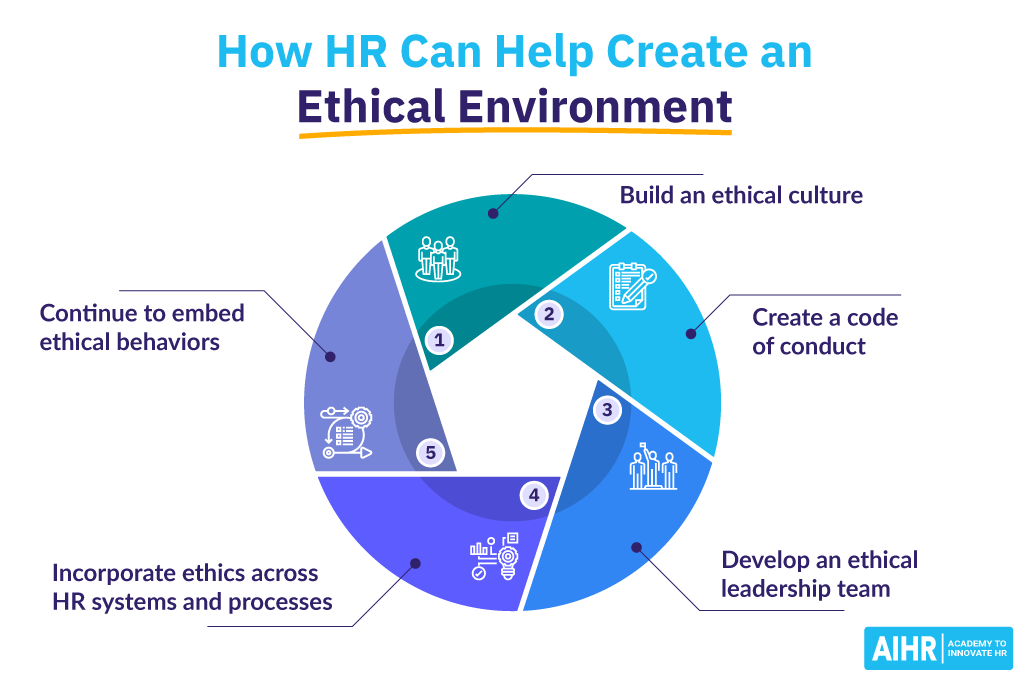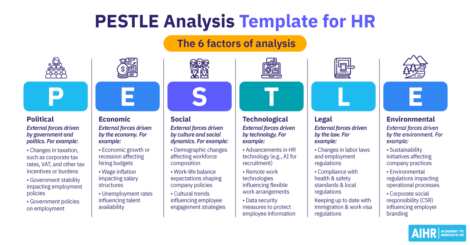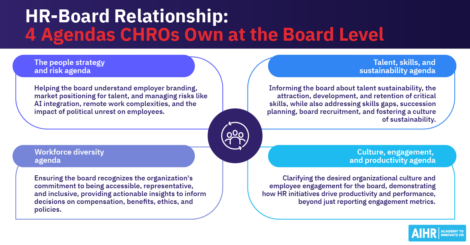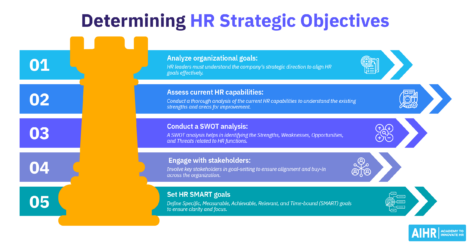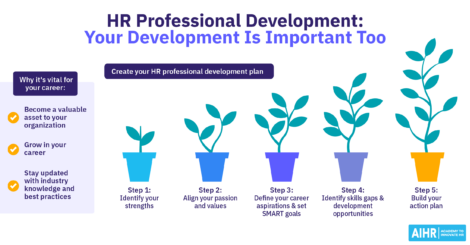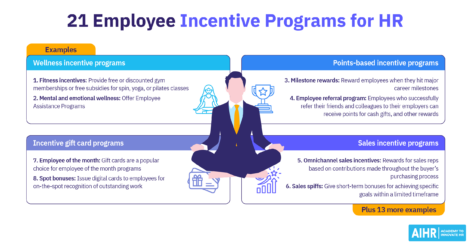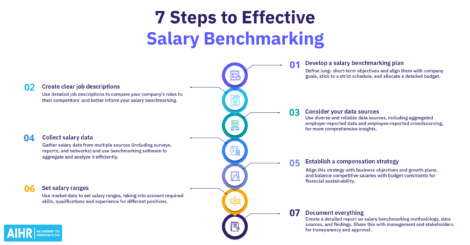Organizational Ethics and HR: An Actionable Guide to Implement Business Ethics
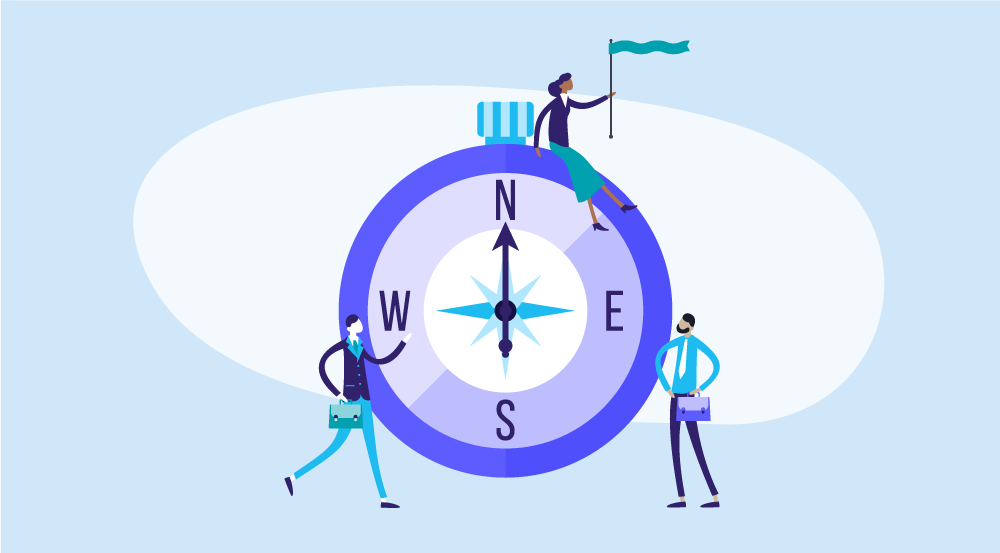
HR professionals have a unique vantage point when it comes to organizational ethics. In the scope of HR’s work, the department is often the first to see and address potential issues, which makes them an essential part of any organization’s ethical culture.
People Teams can play a key role in shaping an organization’s ethical culture by implementing processes and protocols that align with the company’s values and mission.
Contents
What are organizational ethics?
Why HR is important in implementing organization ethics
What HR can do to create an ethical environment for employees
Let’s explore everything you need to know about organizational ethics and HR.
What are organizational ethics?
Organizational ethics – also known as business ethics – are the values, principles, and standards that guide the individual and group behavior of the people in an organization.
Business ethics are set up to steer and manage activities and business situations to proactively avoid harmful behavior. They are often laid out in a code of conduct, which establishes the moral and ethical requirements that employees and the organization must follow.
Why HR is important in implementing organizational ethics
However, having an ethical code of conduct in place is not always a guarantee for an organization that is totally free of unethical behavior. For example, in September 2013, a Wells Fargo employee called a company-created ethics hotline in a bid to report unethical sales activities he had been instructed to carry out. Eight days after sending the email, he was fired.
Although the company had taken actions to include organizational ethics across the business, it was still clearly not part of the Wells Fargo company DNA. This example illustrates the need for HR to play an essential role in implementing and driving ethical behavior.
There are additional reasons why HR must play a valuable role, including:
1. Managing changing employee expectations
Employees (and increasingly candidates) look to employers, rather than governments, for their stance on socio-economic topics.
Examples include Roe v. Wade in the US, the war in Ukraine, and the rising cost of living crisis. How companies – and HR departments in particular – reacted to these events directly impacted how employees viewed the organization they work for.
2. The increasingly strategic role of HR
People Teams are tasked with new business needs in an ever-changing business environment. These business needs bring new challenges that need to be managed, like improving diversity in the workforce, equality, workplace conduct, and creating ethical policies and processes.
Organizational ethics policies and behavior can also directly affect attracting talent, retention, productivity, and engagement. One report, for instance, found that 79 percent of American workers indicated that they would not accept a job with a higher salary from a company that has failed to take action in sexual harassment cases.
3. Navigating organizational change
Employees face ever-changing working conditions (remote/hybrid work) and increasing pressures due to a tight labor market, which impacts their ability to practice their company’s ethics.
According to the 2021 Global Business Ethics Survey Report by the Ethics & Compliance Initiative, 30 percent of 3,320 US employees surveyed indicated that they felt pressured to compromise on their workplace’s ethics. An additional 14 percentage points higher than in the organization’s 2017 survey.
4. Handling common ethical concerns
Organizations face a wide variety of ethical dilemmas. Some examples of ethical concerns that HR may need to navigate include:
- Discrimination. Occurs when a person, or a group of people, is treated unfairly or unequally based on, for example, their age, religion, race, religion, or sex.
- Toxic workplace. The exact definition of a toxic workplace differs between individuals and companies. Generally speaking, a toxic workplace is where hostile, antagonistic, and/or bullying behavior is baked into the company’s core culture.
- Compensation. The gender pay gap – the fact that women are often paid less than men while delivering the same or even more value – is probably the most well-known example of compensation.
- Recruitment and selection. Here too, bias can be a nasty thing to tackle. Despite people’s best interests and the efforts, companies undertake to avoid bias creeping into their hiring processes, unconscious racism, ageism, and sexism still play a role in who gets hired.
- Performance appraisals. There’s a lot (of negative things) to be said about the traditional annual performance appraisal. One major drawback of the ‘old’ way of conducting performance management is that it’s often only the employee’s line manager who provides feedback. This makes it virtually impossible to keep bias and personal preference out of the process. Innovative organizations are adopting agile performance management to evaluate employees from multiple perspectives and support their growth.
- Privacy and confidentiality. A vast and highly topical theme, so to explain this better, let’s focus on employee listening. More and more companies are developing and implementing an employee listening strategy. This strategy enables HR to learn more about their staff’s wishes, concerns, and what matters to them so that the organization can positively act on this information. This, in turn, helps the organization achieve its purpose and goals. But there is a thin line between employee listening and ‘big brother watching’, where a company could use this data against employees.
What HR can do to create an ethical environment for employees
As we’ve discussed, business ethics is present in every priority of HR, from recruitment and selection to performance appraisals, compensation, DEIB, and more.
So, how can People Teams play a key role in creating an ethical environment for employees?
1. Build an ethical culture
Your organization’s ethics reflect its values, principles, and standards, as such, they are intrinsically linked to your company culture and should be an integral part.
Creating an ethical culture isn’t as complicated as it may sound. It’s simply an environment defined by a sense of common purpose where people routinely consider the impact of their decisions. Employees and leadership continuously seek to do the right thing for the company, their colleagues, their customers, and the communities in which they operate.
Walmart is a good example of how a company that has included ethics within the core of its company culture.
The Walmart Statement of Ethics, for example, focuses on trust:
“The trust of our customers, communities, associates, and business partners is our competitive advantage. It’s important to think about our behaviors and ensure that we create a culture that inspires trust.”
Walmart also uses images to highlight its 4 top values:
- respect the individual
- service to the customer
- strive for excellence
- act with integrity.
Organizations should strive to embed ethics into every aspect of their business, with HR playing an instrumental role in promoting this ethical culture and building an inclusive work environment.
Tips: How HR can shape an ethical organizational culture:
- Assess and quantify the current state of the ethical culture – Start with understanding the material factors that contribute to ethical culture and develop new ways to assess your organization’s cultural health accurately.
- Connect culture metrics to business outcomes – People Teams must collaborate across the business to demonstrate how culture impacts business outcomes. Correlating culture metrics with outcome measures such as customer satisfaction or Net Promoter Scores can help understand culture’s critical aspects.
- Ensure an inclusive culture that creates an opportunity for all – It is now the responsibility of the People Team to drive inclusion and equity and track people’s sense of belonging in every part of the organization.
- Equip all employees to consider ethics in decision-making – People Teams can take a proactive approach to review training curriculums, particularly in modules dedicated to ethics and compliance.
- Create a culture of speaking up – Leaders must demonstrate their commitment to creating an open environment for dialogue. They should continuously encourage employees to speak up when they have concerns or questions. For People Teams, this means encouraging employees to speak with their leaders rather than about them.
We further unpack how HR can shape an ethical organization in our ethical culture in organizations article.
2. Create a code of conduct
A code of conduct is unnecessary if the previous step is successful. Your employees are already considering ethics when making decisions and aren’t afraid to speak up if something is an ethical concern to them.
But let’s be honest – that’s in an ideal situation in a perfect world.
Developing a code of conduct will benefit your organization, and HR can also contribute to creating a code of ethics. In large organizations, this is often in collaboration with the ethics department. A code of conduct will differ from one organization to the next. Walmart’s code of ethics above was relatively short, while Uber’s code fills 33 pages, including a framework to help its employees make the right decision.
Tip: What HR should keep in mind when creating a code of ethics
There are, however, some things to keep in mind when it comes to the actual writing of a code of ethical conduct:
- Prioritize readability
- Incorporate leadership support
- Show information in a captivating way
- Offer accessibility options.
Of course, the process doesn’t end once the code is created. HR plays a crucial role in driving the messaging around the company’s code of ethics, including informing new employees – particularly during the onboarding period.
3. Develop an ethical leadership team
Although the People Function is the driving force behind creating an ethical work environment, they will still need the support and buy-in of leadership to drive implementation across the organization.
Encouragingly, HR may also see increased support and interest in developing an ethical environment as business leaders realize its importance.
One survey conducted with 750 global business leaders revealed that 97% felt a personal responsibility to ensure that their company does the right thing. At the same time, 96% of business leaders believe that doing the right thing means following their company’s values and principles and applicable laws and regulations.
Tip: How HR can develop an ethical leadership team
Consider activities such as assisting managers and leaders with:
- Ethical interview questions
- Coaching line managers on worst-case scenarios
- Helping leaders develop a plan to implement and model ethical behaviors.
4. Incorporate ethics across HR systems and processes
Organizations should strive to embed ethics across the business – including all HR systems and processes. HR should set the golden standard for practicing business ethics, as well as incorporate them in all processes, including:
- Compensation
- Recruitment
- Employee retention and engagement
- DEIB.
What this will look like in practice will vary per company, as this is unique to an organization’s specific culture. In the Walmart example, trust played an important role in the organization.
Ultimately, you want your organization’s people to make decisions based on your company’s ethics. You want them to ask themselves continuously, ‘is this decision or behavior in line with our company values?’
5. Ensure ethical behaviors continue to embed across the organization
Measure and track ethical behaviors to evaluate whether ethical behaviors are becoming embedded across the organization. As ethics should become ubiquitous in your company culture, the best way to measure ethics is to measure your company culture.
Tip: How to measure ethics in your company culture
Here are some methods to consider:
- Conduct employee surveys
- Use third-party culture (and ethics) measurement tools
- Organize focus groups
- Conduct exit surveys
- Use the Organizational Culture Assessment Instrument (OCAI).
Evaluate the data to understand whether ethics is a part of your company culture, or whether you need to take additional actions.
On a final note
HR professionals play a significant role in developing and implementing a set of codes that will underpin all decisions, behaviors, systems, and processes. More importantly, though, People Teams are instrumental in nurturing an ethical environment for the organization and its employees.
Weekly update
Stay up-to-date with the latest news, trends, and resources in HR
Learn more
Related articles
Are you ready for the future of HR?
Learn modern and relevant HR skills, online





